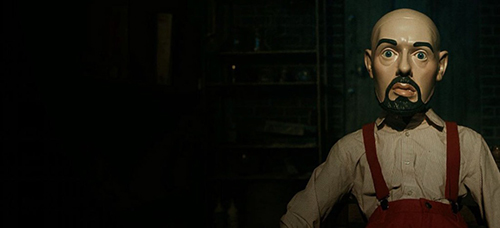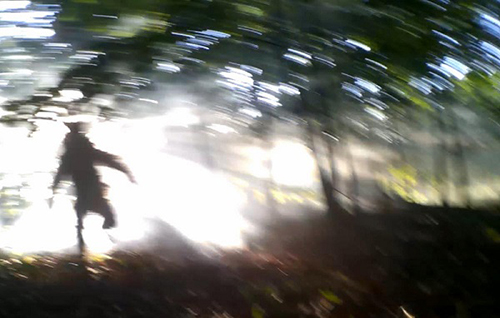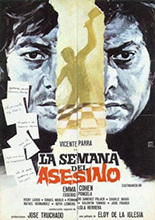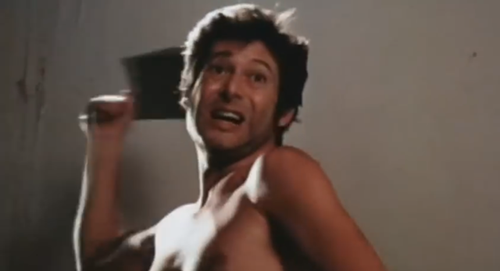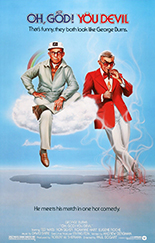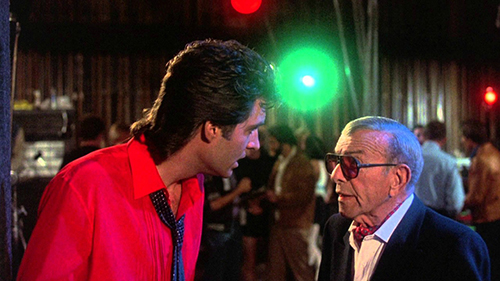
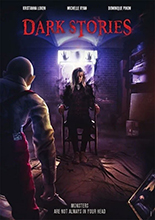 Lovers of horror anthologies shouldn’t be put off by Dark Stories’ generic title, French language or origins as an internet series. Despite all those warning signs — and even more, discussed below — the portmanteau picture arrives as a nice surprise.
Lovers of horror anthologies shouldn’t be put off by Dark Stories’ generic title, French language or origins as an internet series. Despite all those warning signs — and even more, discussed below — the portmanteau picture arrives as a nice surprise.
With more than a smidge of Scheherazade, Kristanna Loken (Terminator 3) plays a suburban mom in the wraparound story. Tied up and trapped in her basement by a sentient, super-creepy ventriloquist’s dummy (voiced by Scott Thrun, 2019’s Anna), she tells stories to the bald killer puppet as a survival technique — six in total.
Up first is a quite creative tale of an art museum exec (Delphine Chanéac, Splice) whose child is sucked into the paintings by a demon. The most overtly comic piece finds Sébastien Lalanne as a a zombie — “immortal, but delicate” — seeking vengeance on the men who put him in the morgue before all his body parts fall off. Arguably the scariest segment concerns a woman (Tiphaine Daviot) haunted by a djinn to the point of an Elm Street-ian sleeplessness.
Less satisfying, although not bad, are bits about ghosts following park jogger Dorylia Calmel (Let the Corpses Tan) and former Bionic Woman Michelle Ryan probing the claims of abduction by aliens — and subsequent God complex — of dimwitted farmer Dominique Pinon (Delicatessen).
Further confounding the aforementioned expectations, Dark Stories feels of a whole even with directing duties split between Guillaume Lubrano and François Descraques — the former responsible for another anthology series in the rather rotten Metal Hurlant Chronicles. Here, however, Lubrano’s sewing skills in unifying disparate elements have improved, striking the right balance of horror and humor all its own vs. beholden to EC Comics. So many contemporary collections of terror tales stumble from that start, so it’s a pleasure to see one not only get it right, but maintain it. —Rod Lott

